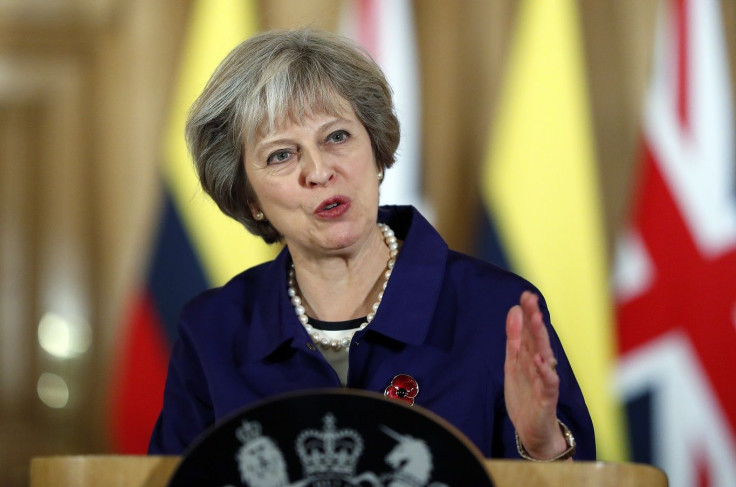Theresa May breaks silence on Trump’s travel ban amid pressure to slam the EO

Theresa May has clarified that she is not in favour of US President Donald Trump’s ban on refugees and citizens from seven Muslim-majority countries to enter the United States. A late-night statement was issued by the British prime minister following an outcry to condemn the order.
May has released her comment regarding the Trump’s executive order through a spokesman, saying the United Kingdom would “make representations” if British citizens were affected by the executive order. May’s spokesman said the immigration policy in the US is a matter of their government, just like how it is for United Kingdom. But the spokesperson has clarified that May’s administration does not agree with Trump’s approach and it is not one to take.
"The new executive order is being studied to see the legal effects it could bring to the UK nationals. If there is any impact on the people of UK, then clearly we will make representations to the US government about that,” the spokesperson explained.
May has been in hot water as she faces questions about what’s taking her so long to respond to the controversial travel ban. Ruth Davidson, the Scottish Conservative leader, was among the first to condemn the order, saying it was “both wrong in itself and very worrying for the future.”
Labour leader Jeremy Corbyn has earlier said that the prime minister has to slam the actions of the US president. “President Trump’s executive order against refugees and Muslims should shock and appall us all,” he said.
Executive order titled “Protecting the Nation from Foreign Terrorist Entry to the United States” seeks a 90-day ban on travel to the US for people from Iran, Iraq, Libya, Somalia, Sudan, Syria and Yemen. The order has been signed by Trump on Friday, Jan. 27.
The Guardian has noted that there are already reported cases that British people of dual nationality with the affected countries are not able to travel to the United States as a result of the ban. Even celebrities and politicians like Olympic gold medallist Sir Mo Farah and Nadhim Zahawi of the British Conservative Party are likely to be affected by the immigration ban.
Based on its text, the executive order seeks to "protect the United States from foreign nationals entering from countries compromised by terrorism.” The council on American-Islamic Relations (Cair) has already issued a lawsuit claiming that Trump’s executive order violates the first amendment of the constitution which ensures that there should be no ban on the free exercise of religion.




















